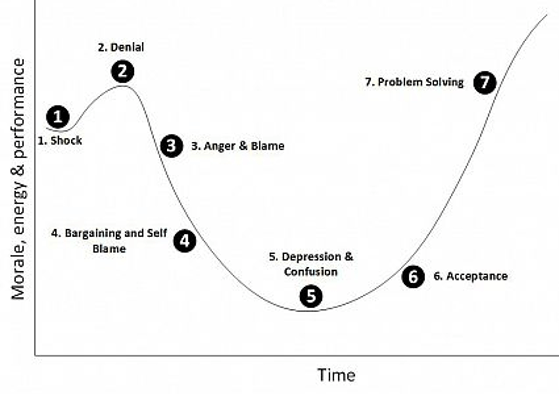Whilst you’re likely to be feeling physical pain with your running injury. I feel it’s important to discuss the mental side of coping with a running injury.
Like most runners, I’ve had my fair share of running injuries over the years. These always follow a similar pattern of pushing too hard, not getting my body recover and over-training. In recent years I’ve experienced Achilles pulls, knee pain, plantar fasciitis, sciatic nerve pain and hamstring strain.
You would think I was wise to the signs to look our for now and take adequate measures but No! My mind overrules by body in wanting to push in search of performance gains. That being said, I have learnt to look after myself more through stretching, yoga and foam rolling through daily habits to keep flexible :-).
If any of the above sound familiars then like you are part of the majority every year that gets injured through running. Yale Medicine states that 50% of runners get injured each year although many other sources cite higher up to 80%! Runners are a stubborn bunch so the key is to look for the signs and plan accordingly, you may be best skipping a run if it prevents you needing to take 3 weeks off because you made it worse.
Before I share my advice I want to clarity I’m not a coaching or medical professional. I have gone through this time and time again so if anything if helping myself document the recovery, rehabilitation and rebuild process.
Stages of running injury grief
The stages of grief model can be applied to almost anything in life, from copying with death to being told a deadline will be missed in work. I find it helps put things in context, allowing you to move forward quickly into acceptance and problem solving phases.
I’m not going to talk through each stage as they are self explanatory. Relate the model to the last time you experienced disappointment, can you relate? As I write this, experiencing a hamstring strain I’m at stage 5 to find talking/writing about it helps :-).

What you can do?
Let’s move through stages 3, 4 and 5 quickly. You need to accept your injured and move forwards. This is all in context to the injury, how severe is your strain, pull, etc? Can you walk comfortably? You need to establish what movements aggravate the injury. For example, you may feel an Achilles pull walking up the stairs. Alternatively, you may feel sciatic nerve pain when sitting at a desk.
Be proactive in establishing the specifics of your injury. Research and seek professional advice if you are unsure as this will allow you to plan and move into problem-solving mode. A future plan may include a strengthening programme or a period of cross-training until you can restart running. This is about ensuring you have the right environment and support in place to come back stronger.
Cross-Training
Does your rehabilitation plan include cross-training? This is all in context to your running injury but this can be a great way to refocus your mind. Perhaps use the time to focus on your swimming technique or explore new areas on your bike.
Keep in mind your running injury and avoid aggravating it. Perhaps consider easier forms of exercise such as walking before building up to more intense cardio so you can ease your body back in. You want to cover and come back strong rather than delay your recovery further.
Planning for the future
Have a goal and plan then work against it. Base your day to day decisions on that goal to ensure you’re making the right decisions in your rehabilitation. Be aware of slowing down your recovery by being stubborn, exercise can be a drug it’s hard to step away from.
Before careful of an injury relapse by coming back too soon. 33% off runners who come back too quick and push too soon will relapse, take it easy especially on your first few weeks back. You need to let your body heal.
As I’ve said in this post, look to work with a physio and/or coach who can work with you during your rehabilitation and beyond. They are likely to be more knowledgeable and hold you to account. You know your body best though so know what signs to look out for :-).
One took I recommend, keep a diary. Write down how each run feels so you’re really reflecting on your training and questioning yourself.
The grief of a running injury may not be easy and may take time so surround yourself with knowledge and the best people to bring you back stronger, physically and mentally.






